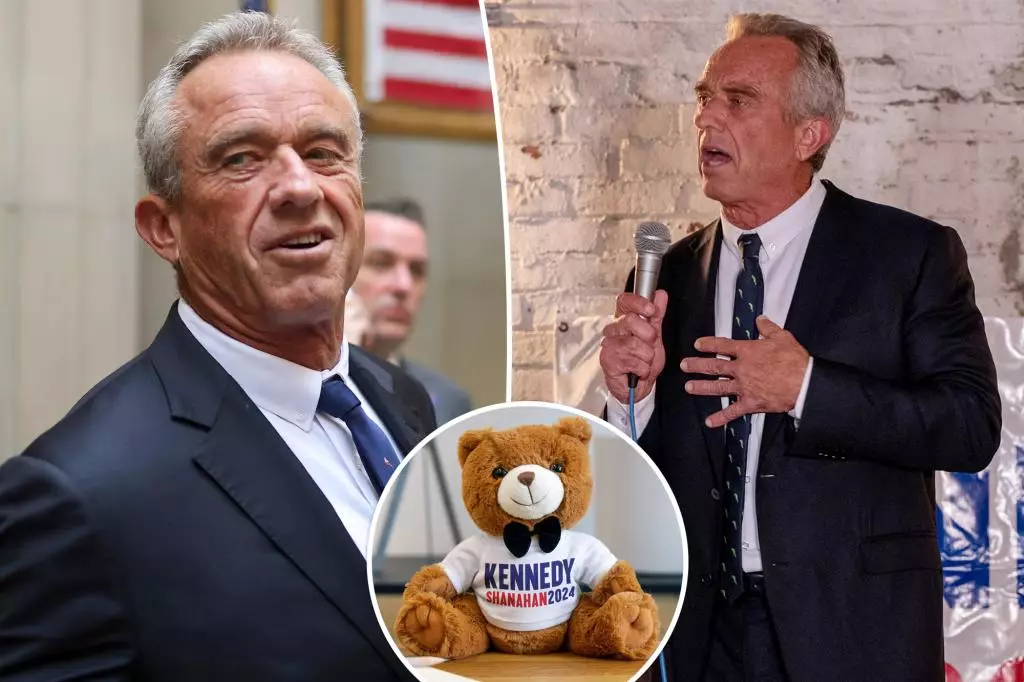Robert F. Kennedy Jr. has become a polarizing figure in contemporary politics, often overshadowed by controversies surrounding his personal life and political allegiance. As the scion of one of America’s most prominent political families, Kennedy’s actions carry considerable weight, and his recent decisions have provoked a wide spectrum of reactions—both supportive and critical.
The public’s fascination with Kennedy has surged, particularly in light of recent reports involving alleged extramarital activities, including a sexting scandal. Although Kennedy denies these claims, the very nature of such allegations casts a long shadow over his political aspirations. Sources close to him suggest that he anticipated the media frenzy surrounding his personal life but remains undeterred in his political pursuits. He believes steadfastly that his mission is a noble one, equating it to “God’s work.” Such sentiment raises questions about the intersection of personal controversies and public service. Can Kennedy effectively champion his political causes while navigating the tumult that comes with personal scandals?
Meanwhile, sources indicate that Kennedy’s decisions have strained familial relationships. Key members of the Kennedy clan have expressed disappointment over his endorsement of Donald Trump, arguing that this endorsement runs counter to the core values the family has upheld for generations. This rift within the family illustrates the divergent paths and perspectives concerning political ideology, which have seemingly intensified in recent years.
Kennedy’s decision to endorse Trump has elicited vehement backlash from his family members, who released a formal statement criticizing him for straying from the family’s cherished ideals. They assert that his endorsement is not merely a political misstep but a “betrayal” of the legacy founded by their father, Robert F. Kennedy. This statement emphasizes their desire for a political vision anchored in unity, hope, and individual freedom.
The familial divide extends beyond mere statements. Previous opposition to Kennedy’s bid for a third-party candidacy from his relatives showcases a broader concern about the ramifications of his political decisions—potentially damaging not just the Kennedy family name but also public perceptions of political integrity. This conflict within the family raises profound questions regarding loyalty, legacy, and the very fabric of political identity.
Adding another layer of complexity, Kennedy’s alleged romantic entanglement with journalist Olivia Nuzzi has become fodder for tabloid speculation. Reportedly initiated through professional interactions, the relationship’s revelations have varied dramatically. While Kennedy has firmly denied any physical involvement, reports of intimate exchanges via FaceTime and romantic declarations have emerged. The public’s scrutiny of personal relationships can undoubtedly distract from political messages, thus complicating Kennedy’s efforts to position himself as a serious contender on the political landscape.
Complicating matters, his wife, actress Cheryl Hines, reportedly has expressed her dissatisfaction, revealing the personal strain that these developments have wrought. Hines’ discomfort with Kennedy’s political alignment, particularly his association with Trump, indicates that personal and political lives are intermingling in a messy and unpredictable way.
As RFK Jr. navigates a landscape filled with intrigue, controversy, and familial discord, it becomes increasingly evident that his journey is rarely linear. His commitment to political engagement remains steadfast, even as he encounters obstacles that could derail his ambitions. The unfolding narrative poses a question that lies at the heart of American politics—how do personal ethics and professional aspirations coexist in an era of scrutiny?
Kennedy’s path, marked by a blend of resilience and personal challenges, will continue to be a subject of fascination for both his supporters and detractors. As the political and public spotlight remains firmly fixed upon him, RFK Jr. is left to grapple not merely with his own aspirations but with the intricate legacies of both his family and American democracy itself. The outcome of his journey isn’t merely a reflection of his capability but a stark reminder of how personal choices resonate within the broader quesion of political conduct.

